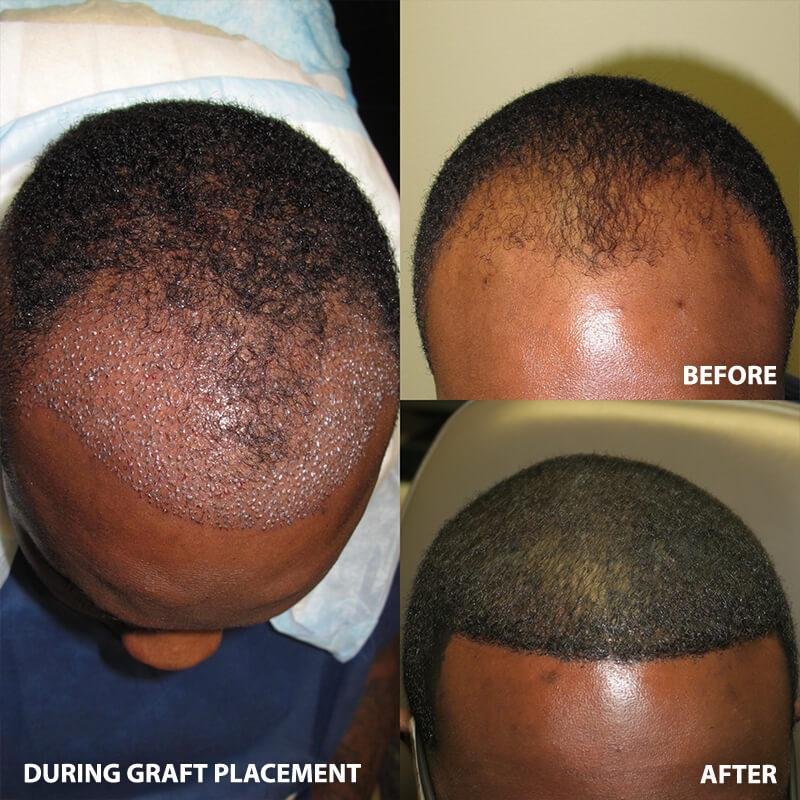Hair Transplant Side Effects
- Home
- Hair Transplant Side Effects

How long do the adverse effects of hair transplants last?
Modern FUT and FUE hair transplants may entail a few temporary side effects, which are typically minimal. With advanced techniques and skilled surgeons, permanent side effects such as scarring should be rare. Temporary side effects may include redness, swelling, numbness or loss of sensation, itchiness, pimples, bleeding, tenderness, and shock loss. Let’s delve into these temporary side effects individually.
Redness
Another potential side effect of hair transplant surgery is redness in both the donor and recipient areas. This redness, particularly noticeable in the recipient area, can persist for a few weeks to several months, depending on the individual. Individuals with very fair skin may experience prolonged redness, while those with darker skin may see it resolve more quickly and be less noticeable.
During the healing process, when small incisions are made in the scalp to accommodate grafts, blood vessels open to bring oxygen and nutrients to the wound. In individuals with pale skin, the contrast between the blood vessel formation and the skin can make the redness more apparent, as more blood is closer to the skin surface. Conversely, in individuals with darker skin, the reduced contrast makes the redness less noticeable.
Frequently Asked Questions Concerning Redness After Surgery
How much time does redness last?
How may redness from a hair transplant be concealed?
In cases where the treatment is mostly limited to the hairline, any redness may generally be hidden by combing the hair behind the work forward. Applying makeup or concealers a week or longer after a treatment might be a useful alternative for more substantially healed portions of the front where comb forward is impractical. Most caps and hats can be worn for at least a week after surgery. When applying makeup or concealer, exercise caution and be sure you completely wash your hands after every application. Steer clear of any accumulation that might harm the just transplanted grafts’ surroundings.
After a hair transplant, numbness
Small nerve terminals are cut during a surgery. Consequently, there is a transient loss of feeling in the donor and recipient regions. You don’t really feel the numbness after a short while, but if you touched the affected places, you could sense a little less feeling.
Common Questions Regarding the After-Surgery Side Effects of Numbness
What is the duration of numbness following hair transplantation?
Within a few weeks, numbness or lack of sensation should begin to improve, and each week after that, it should get better progressively. After surgery, numbness normally goes away in three to four months, but it may take up to six months or longer for things to totally recover. Although recovery times could differ from patient to patient, this side effect is not concerning. The length of time you may suffer the lack of feeling can also be affected by certain conditions, such as more involved treatments or thick packing.
What is the duration of nerve discomfort following a hair transplant?
Following a well-executed hair transplant operation, such as the one provided at Hasson and Wong, post-operative discomfort is typically minimal. While most individuals feel relatively well after the procedure, some may experience moderate discomfort, which is considered normal. In certain instances, post-operative pain may be more pronounced, but our post-operative package includes pain and inflammatory medications to address any discomfort. Many patients find that over-the-counter drugs like Tylenol and Advil are sufficient, and harsher painkillers are seldom necessary. While some discomfort may persist for a few days or perhaps a week or two, it is generally tolerable and not cause for concern.
Can nerves be harmed by a hair transplant?
During a hair transplant procedure, superficial nerve endings are typically severed, leading to temporary numbness or loss of sensation in both the recipient and donor areas. However, these nerve endings typically regenerate over time, usually within 2 to 6 months after the procedure. Permanent long-term nerve damage is very rare, particularly when performed by skilled surgeons like Dr. Hasson and Dr. Wong. Surgeons with less experience may pose a higher risk of causing more significant nerve damage during the procedure. This underscores the importance of selecting a qualified and experienced surgeon for your hair transplant surgery.
